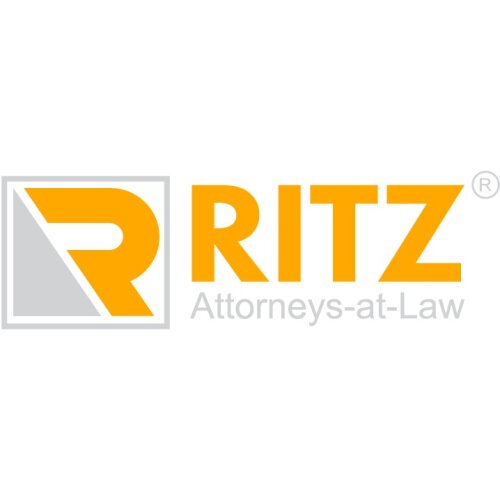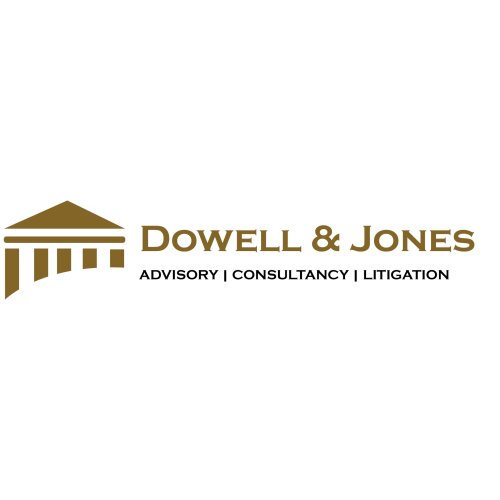Best FDA Law Lawyers in Malawi
Share your needs with us, get contacted by law firms.
Free. Takes 2 min.
Or refine your search by selecting a city:
List of the best lawyers in Malawi
About FDA Law in Malawi
FDA Law in Malawi refers to the laws and regulations governing the approval, importation, manufacture, distribution, sale, and usage of food, drugs, and related products. The main regulatory authority is the Pharmacy and Medicines Regulatory Authority (PMRA), previously known as the Pharmacy, Medicines and Poisons Board, which operates under the Pharmacy and Medicines Regulatory Authority Act. FDA Law in Malawi aims to protect public health by ensuring that all food, pharmaceutical, and medical products meet strict safety, efficacy, and quality standards before reaching consumers.
Why You May Need a Lawyer
There are several reasons why individuals or businesses may seek legal assistance in FDA Law in Malawi:
- If you are starting a business importing, exporting, manufacturing, or selling foods, medicines, or medical devices and need help to obtain the required licenses and approvals.
- If your product has been seized or you have been accused of violating regulatory requirements.
- If you need guidance on proper labeling, advertising, or clinical trials for a new product.
- If you face adverse inspection findings or enforcement actions from regulators.
- If you are involved in litigation, complaints, or disputes regarding product quality or consumer safety.
- If you want to understand your obligations as a healthcare provider, pharmacy operator, or distributor under Malawian law.
- If you require advice before launching a new food or drug product in the Malawian market.
Local Laws Overview
Malawi's FDA-related regulatory framework is primarily established under the Pharmacy and Medicines Regulatory Authority Act, along with various subsidiary legislations and guidelines issued by the PMRA. Key areas regulated under this framework include:
- Licensing of pharmacies, wholesalers, and manufacturers of medicines and medical devices
- Registration, approval, and quality control of medicines and related products before they are marketed
- Import and export constraints for pharmaceutical products
- Standards for food safety, labeling, and claims enforcement
- Conduct, approval, and monitoring of clinical trials for new products
- Controls on the advertisement and promotion of medicines, medical devices, and food products
- Inspection powers and sanctions for non-compliance, including fines, suspension or revocation of licenses, and product recalls
In addition, several related laws such as the Public Health Act, Dangerous Drugs Act, and Consumer Protection Act intersect with FDA Law and may be relevant depending on the nature of your case.
Frequently Asked Questions
What authority oversees food and drug law in Malawi?
The Pharmacy and Medicines Regulatory Authority (PMRA) is the main body responsible for enforcing food, drug, and related product regulations in Malawi.
Do I need approval to sell a new drug or medicine in Malawi?
Yes, approval from the PMRA is mandatory before you can legally sell or distribute new medicines or drugs in Malawi.
What are the requirements for importing medicines into Malawi?
Importers must obtain a valid import license from the PMRA. Additional requirements include product registration, proof of origin, quality assurance documents, and compliance with labeling standards.
May I advertise a new food supplement in Malawi without approval?
No. All health-related product advertisements must be reviewed and approved by the PMRA to ensure compliance with local laws.
Can I face penalties for selling unapproved products?
Yes, selling unapproved products can result in fines, confiscation of goods, license suspension, and, in severe cases, criminal prosecution.
What should I do if my product is seized by authorities?
Consult a lawyer experienced in FDA Law as soon as possible. They can help you understand the reason for seizure and the steps to potentially recover your goods or challenge the action.
Are there specific requirements for clinical trials in Malawi?
Yes, you must apply for approval from the PMRA and follow detailed protocols to ensure the safety and rights of trial participants.
How does the PMRA ensure product quality?
Through inspections, registration processes, batch testing, and ongoing monitoring of products on the market.
What can I do if accused of violating FDA regulations?
Contact a lawyer immediately. You have the right to respond to allegations, provide documentation, and defend your position during any hearings or enforcement actions.
Do traditional or herbal medicines require registration?
Yes, most traditional and herbal medicines must also be registered and approved by the PMRA before they can be sold or marketed in Malawi.
Additional Resources
If you need more information or support, consider reaching out to:
- The Pharmacy and Medicines Regulatory Authority (PMRA)
- Ministry of Health - Department of Pharmaceuticals
- Consumer Association of Malawi (CAMA)
- Malawi Law Society
- Local health law specialists or legal aid organizations
Next Steps
If you find yourself needing legal assistance regarding FDA Law in Malawi, take these steps:
- Gather all relevant documentation about your case or inquiry, such as licenses, correspondence with regulators, product details, and inspection reports.
- Identify a lawyer or legal firm specializing in regulatory, health, or commercial law with experience in FDA-related matters.
- Schedule a consultation to discuss your situation and obtain guidance on your legal rights and obligations.
- Follow your lawyer's advice regarding compliance, applications, appeals, or representation in disputes.
- Stay updated with changes in Malawian FDA Law by monitoring official communications from the PMRA or legal updates from reputable sources.
Seeking the right legal guidance early can help protect your interests, ensure compliance, and resolve any issues efficiently in the field of FDA Law in Malawi.
Lawzana helps you find the best lawyers and law firms in Malawi through a curated and pre-screened list of qualified legal professionals. Our platform offers rankings and detailed profiles of attorneys and law firms, allowing you to compare based on practice areas, including FDA Law, experience, and client feedback.
Each profile includes a description of the firm's areas of practice, client reviews, team members and partners, year of establishment, spoken languages, office locations, contact information, social media presence, and any published articles or resources. Most firms on our platform speak English and are experienced in both local and international legal matters.
Get a quote from top-rated law firms in Malawi — quickly, securely, and without unnecessary hassle.
Disclaimer:
The information provided on this page is for general informational purposes only and does not constitute legal advice. While we strive to ensure the accuracy and relevance of the content, legal information may change over time, and interpretations of the law can vary. You should always consult with a qualified legal professional for advice specific to your situation.
We disclaim all liability for actions taken or not taken based on the content of this page. If you believe any information is incorrect or outdated, please contact us, and we will review and update it where appropriate.
Browse fda law law firms by city in Malawi
Refine your search by selecting a city.
















